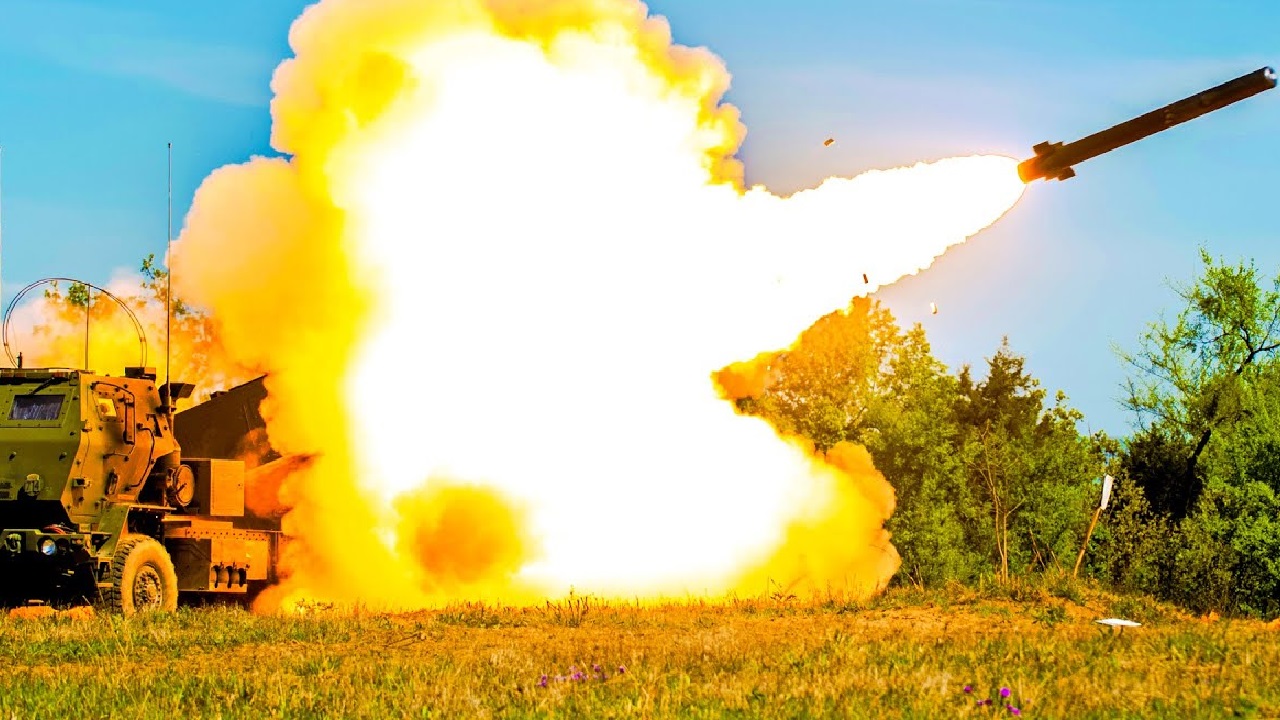Kremlin officials have acknowledged that on New Year’s Day, Ukrainian forces used U.S.-supplied guided rockets to strike a building in the Donbas region that housed Russian soldiers.
(Subscribe to Our YouTube Channel Here.)
Moscow tried to downplay its losses, claiming just 63 troops were killed in the early-morning strike. Ukrainian officials claim that about 400 Russian soldiers died.
Both sides say the strike – the deadliest attack against Russian forces in the war – took place in Makiivka, a suburb east of Donetsk, a major Ukrainian city that has been under Russian control since 2014. Western journalists have been unable to enter the area to confirm the exact number of troops housed in the building.
According to numerous reports, the structure was a vocational school. It was used as a dormitory to house Russian conscripts but also served as an ammunition supply depot.
Multiple rockets hit the structure in the early hours of Sunday, just minutes into the New Year.
The Russian Ministry of Defense said that four HIMARS rockets hit the building, while Russian air defenses shot down an additional two.
Anger in Russia
What is especially noteworthy about this attack is that it was quickly acknowledged by Moscow, even though losses were downplayed.
Also notable is vocal condemnation of Russian leaders in the aftermath. Daniil Bezsonov, a spokesman for the Russian-installed proxy government in the Donetsk region, described the strike as “a massive blow” and suggested that errors had been made by Russian commanders.
“The enemy inflicted the most serious defeats in this war on us not because of their coolness and talent, but because of our mistakes,” he wrote in a post on Telegram.
Bezsonov further called for punishment of military officers who ordered such a large number of troops to be stationed in the facility.
Several Russian military bloggers have also expressed outrage over the attacks and passed the blame on the Kremlin leadership.
“I can’t blame Ukraine. The real killer is the son-of-a-b**** who made our fighters into easy targets,” posted Alexey Sukonkin, an influential blogger in Russian-occupied Ukraine, according to NPR.
Another military blogger, Igor Girkin, a former Russian paramilitary commander, questioned the logic of storing ammunition in the same building where troops were housed.
The Blame Game
The simmering anger over the Russian military’s failure to safeguard the soldiers has extended well beyond pro-war Russian military bloggers.
According to The New York Times, some Russian lawmakers who are usually in lockstep with the Kremlin demanded an investigation. They included Sergei Mironov, a prominent member of the upper house of Russia’s parliament. On his Telegram channel, Mironov called for criminal prosecution of all officials responsible for the Makiivka disaster “whether they wear epaulets or not.”
“Obviously neither intelligence nor counterintelligence or air defense worked properly,” Mironov wrote.
However, Russia’s state-run TASS news agency suggested it was the soldiers’ cellphone data that actually tipped off Ukrainians.
Throughout the war, Russian soldiers have spoken on open/non-secure mobile phones, inadvertently revealing their positions but also exposing disarray within the ranks.
Author Experience and Expertise: A Senior Editor for 19FortyFive, Peter Suciu is a Michigan-based writer. He has contributed to more than four dozen magazines, newspapers, and websites with over 3,200 published pieces over a twenty-year career in journalism. He regularly writes about military hardware, firearms history, cybersecurity, politics, and international affairs. Peter is also a Contributing Writer for Forbes and Clearance Jobs. You can follow him on Twitter: @PeterSuciu.

